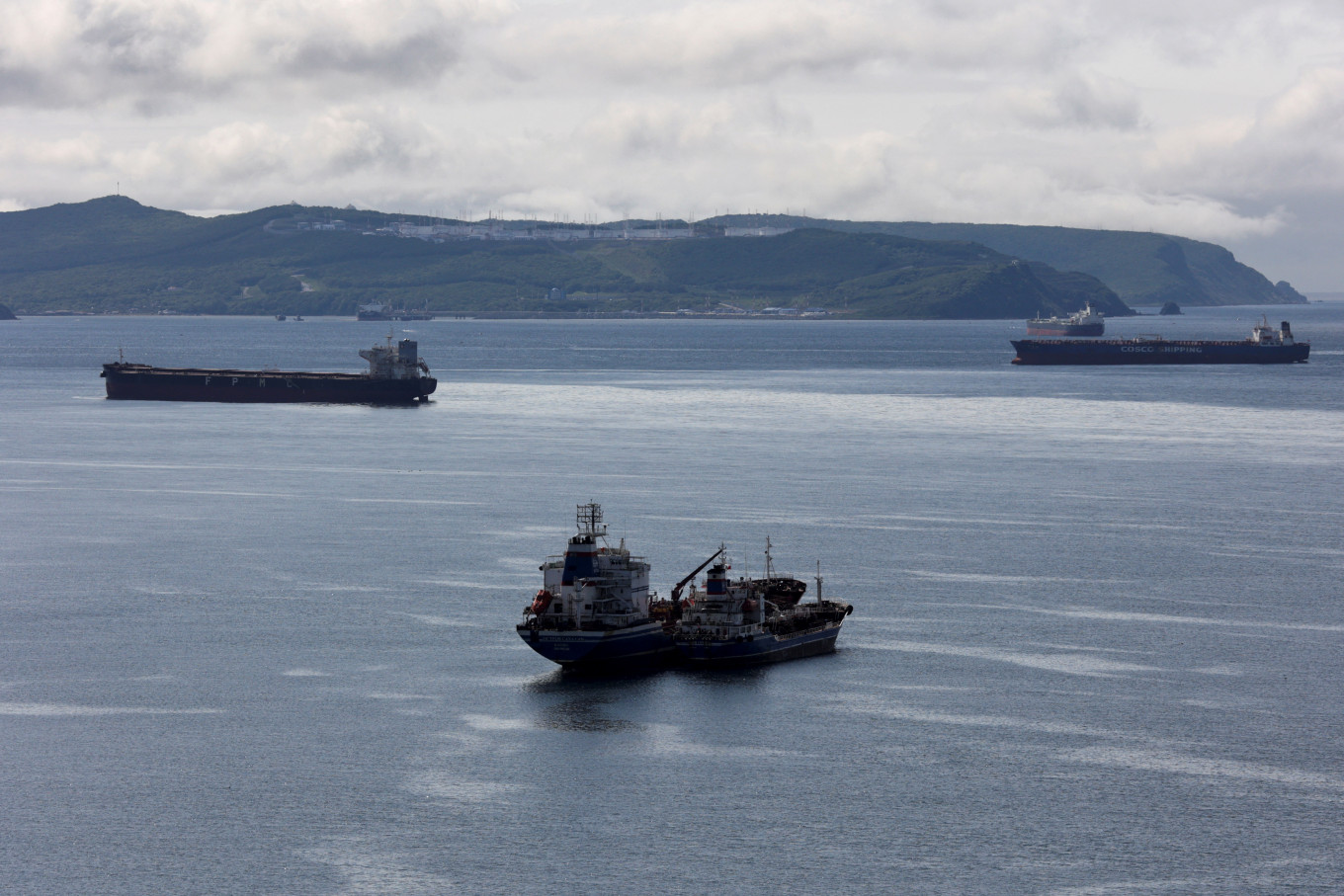Popular Reads
Top Results
Can't find what you're looking for?
View all search resultsPopular Reads
Top Results
Can't find what you're looking for?
View all search resultsG7 and oil trade wall
If the G7 implements the cap, the group will bar all allies and G7-affiliated companies from shipping, financing or insuring oil from Russia to its buyers.
Change text size
Gift Premium Articles
to Anyone
A
fter meeting a chorus of criticisms from investors and financial markets, the Group of Seven (G7) of advanced economies has been rethinking its plan to put a price cap on Russian oil.
The United States treasury, the force behind the cap, has delayed releasing the level of the cap until after the country’s midterm elections on Nov. 8, according to The Wall Street Journal, raising doubts that the policy can be implemented on Dec. 5, when Europe executes its oil ban on Russia.
The delay is a good opportunity for the elite group to reconsider the price cap. There is no doubt the policy is well-intentioned. By putting a ceiling price on its oil, the G7 price cap aims to exhaust Russia’s war chest funding the Ukraine war while ensuring the flow of cheap oil amid a worsening energy crisis.
But as the proverb says “the road to hell is paved with good intentions”, there are so many ways that the policy could go wrong. For one obvious reason, Russia has vehemently opposed the plan, vowing that it would not sell to any country adopting the cap. It has been reported that Russia has begun moving its shipping facilities from Europe to Asia to focus on countries that are still buying, such as China, India and Turkey.
Still, it is not going to be a smooth sailing for Russia since it is dependent on European maritime services to ship its oil. If the G7 implements the cap, the group will bar all country allies and G7-affiliated companies from shipping, financing or insuring oil from Russia to its buyers unless they agree to apply the price ceiling. Russia will have a serious delivery problem.
S&P Global predicts that there will be shortages in tanker supply for Russian oil since the European Union and G7-based shipping companies control a large market share in Russian tanker trade. In September, they lifted 55 percent of Russia's crude exports from the Baltic and Black Sea.
Under these circumstances, the cap will create shortages in oil supply and, therefore, raise prices and deepen the global inflation crisis.
What is worse, the price cap will also potentially create a demarcation in global oil trade. Russia and its buyers, which most likely will include China and India as its current buyers, may have to rebuild the shipping capacity on their own. And while doing so, these countries may separate themselves from the G7 and other adopters of the price cap.
Next year, even without the consequences of the G7 price cap, global recession is almost inevitable, mostly because of the war and the trend of central banks in raising interest rates to tame inflation.
Indonesia has been seen among the more fortunate places, with strong economic growth, relatively low inflation and a trade surplus. But even here this good fortune has faded, with falling trade and state budget surpluses in the third quarter of this year.
Unlike rich economies, Indonesia does not have unlimited resources to assure economic running for its population of a whopping 280 million people. Economic growth for developing countries like Indonesia is not a problem of getting rich, but a lifeboat of survival.
For Indonesia, a non-customer, purchasing oil from Russia with or without the price cap will be an economic, not a political, decision. Cheaper oil price will be more affordable for the state budget and will ensure a steady fuel supply to sustain the country's economic growth.
The price cap, which will build a trade wall for oil, is essentially bringing more countries, especially Asian countries, to the forefront of the Ukraine war.
When G7 members ask countries, including Indonesia, to implement the price cap, it is worth asking back, whose war are we currently in?











